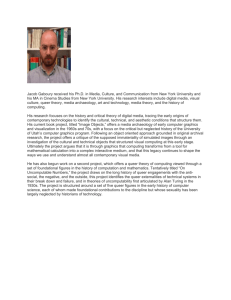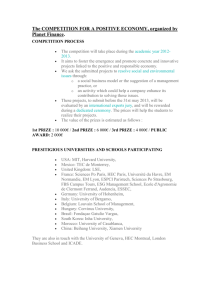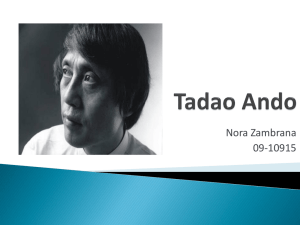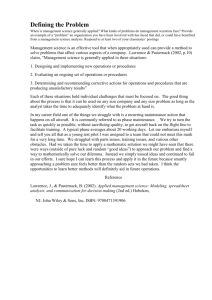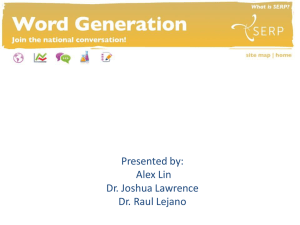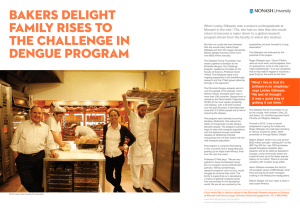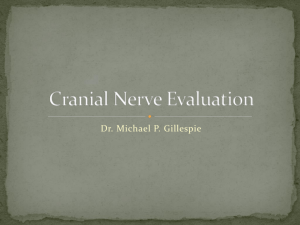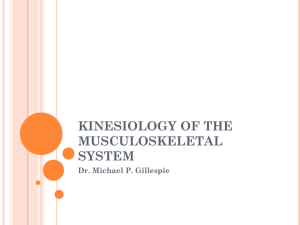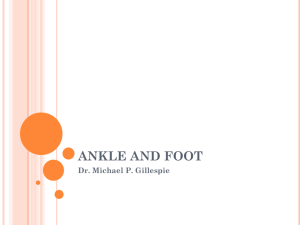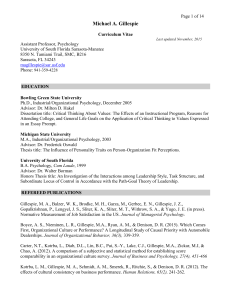2014 Robert G. Lawrence Prize Committee Report Members of the
advertisement
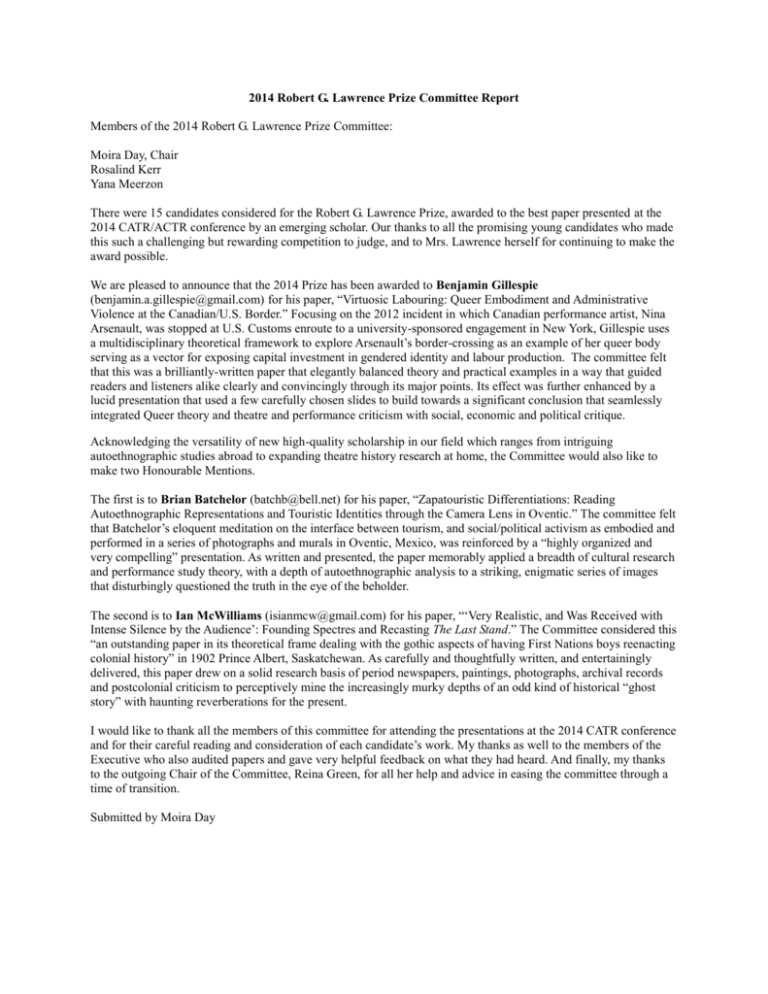
2014 Robert G. Lawrence Prize Committee Report Members of the 2014 Robert G. Lawrence Prize Committee: Moira Day, Chair Rosalind Kerr Yana Meerzon There were 15 candidates considered for the Robert G. Lawrence Prize, awarded to the best paper presented at the 2014 CATR/ACTR conference by an emerging scholar. Our thanks to all the promising young candidates who made this such a challenging but rewarding competition to judge, and to Mrs. Lawrence herself for continuing to make the award possible. We are pleased to announce that the 2014 Prize has been awarded to Benjamin Gillespie (benjamin.a.gillespie@gmail.com) for his paper, “Virtuosic Labouring: Queer Embodiment and Administrative Violence at the Canadian/U.S. Border.” Focusing on the 2012 incident in which Canadian performance artist, Nina Arsenault, was stopped at U.S. Customs enroute to a university-sponsored engagement in New York, Gillespie uses a multidisciplinary theoretical framework to explore Arsenault’s border-crossing as an example of her queer body serving as a vector for exposing capital investment in gendered identity and labour production. The committee felt that this was a brilliantly-written paper that elegantly balanced theory and practical examples in a way that guided readers and listeners alike clearly and convincingly through its major points. Its effect was further enhanced by a lucid presentation that used a few carefully chosen slides to build towards a significant conclusion that seamlessly integrated Queer theory and theatre and performance criticism with social, economic and political critique. Acknowledging the versatility of new high-quality scholarship in our field which ranges from intriguing autoethnographic studies abroad to expanding theatre history research at home, the Committee would also like to make two Honourable Mentions. The first is to Brian Batchelor (batchb@bell.net) for his paper, “Zapatouristic Differentiations: Reading Autoethnographic Representations and Touristic Identities through the Camera Lens in Oventic.” The committee felt that Batchelor’s eloquent meditation on the interface between tourism, and social/political activism as embodied and performed in a series of photographs and murals in Oventic, Mexico, was reinforced by a “highly organized and very compelling” presentation. As written and presented, the paper memorably applied a breadth of cultural research and performance study theory, with a depth of autoethnographic analysis to a striking, enigmatic series of images that disturbingly questioned the truth in the eye of the beholder. The second is to Ian McWilliams (isianmcw@gmail.com) for his paper, “‘Very Realistic, and Was Received with Intense Silence by the Audience’: Founding Spectres and Recasting The Last Stand.” The Committee considered this “an outstanding paper in its theoretical frame dealing with the gothic aspects of having First Nations boys reenacting colonial history” in 1902 Prince Albert, Saskatchewan. As carefully and thoughtfully written, and entertainingly delivered, this paper drew on a solid research basis of period newspapers, paintings, photographs, archival records and postcolonial criticism to perceptively mine the increasingly murky depths of an odd kind of historical “ghost story” with haunting reverberations for the present. I would like to thank all the members of this committee for attending the presentations at the 2014 CATR conference and for their careful reading and consideration of each candidate’s work. My thanks as well to the members of the Executive who also audited papers and gave very helpful feedback on what they had heard. And finally, my thanks to the outgoing Chair of the Committee, Reina Green, for all her help and advice in easing the committee through a time of transition. Submitted by Moira Day
